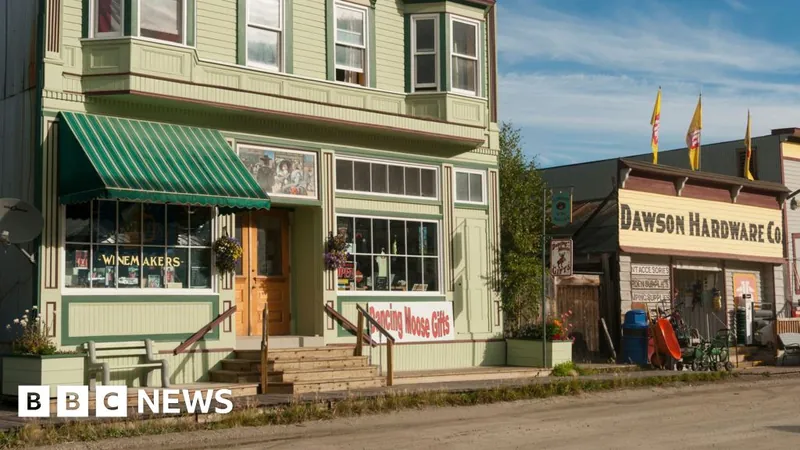
Canadian Town Revolutionizes Oath of Office: A Bold Move Toward Inclusivity!
2024-11-29
Author: Liam
Canadian Town Revolutionizes Oath of Office: A Bold Move Toward Inclusivity!
In a groundbreaking decision, a Canadian territory has revamped the oath-taking process for its elected municipal officials, creating a historic opportunity for leaders to pledge allegiance to the Canadian Constitution rather than the British Crown. This transformative change arises from the recent refusal by the newly-elected city council of Dawson City, Yukon, to take the King's oath, demonstrating solidarity with an Indigenous council member who highlighted the Crown's troubling legacy in Canada.
The refusal to take the traditional oath culminated in a standoff, delaying the council's confirmation and creating a significant governance impasse in the town of approximately 2,400 residents. Faced with a looming deadline for the council to officially assume power, Yukon authorities swiftly enacted a law permitting officials the choice between two oaths: one affirming commitment to the British Monarch and the other to Canada’s Constitution.
Richard Mostyn, Yukon’s Minister of Community Services, remarked that the adjustment enables local leaders to affirm their allegiance in a manner better reflecting the diverse values and cultural identities present in modern Canadian society. This initiative not only highlights a growing sensitivity toward Indigenous issues but also marks a shift in the longstanding traditions associated with the oaths of office in Canada—a Commonwealth nation with a colonial past.
Under Canadian law, newly-elected officials typically face a strict 40-day window post-election to take the oath, failing which their election results may be rendered void. For the Dawson City council, this timeline placed immense pressure on them to find a suitable alternative by the 9th of December.
Councillor Darwyn Lynn, a member of the Tr’ondëk Hwëch’in First Nation, expressed his reluctance to pledge allegiance to a monarch given Canada’s complex relationship with Indigenous peoples. “I read it probably about 15 times, and it didn’t get any easier to do,” he stated during the announcement of the new law, underscoring the emotional and historical weight of the decision.
The ensuing dialogue sparked by this controversy has encouraged community discourse about Canada’s colonial history—forcing many to grapple with the importance of inclusivity in governance. Lynn characterized the discussions as 'very balanced,' acknowledging a spectrum of perspectives, from those supporting the alternative oath to others who valued the traditional one. “Everybody has the right to have their opinion and option, and that is the great part of our country,” he affirmed, highlighting the essence of democracy in action.
The council members are set to take their chosen oaths in the coming days, paving the way for a new chapter in Dawson City's governance. Importantly, this is not an isolated case—Quebec, another Canadian province, similarly repealed the oath requirement for its elected officials last year, with one lawmaker labeling it a 'relic from the past.'
The ripple effects of such changes may inspire further reforms across Canada, challenging entrenched traditions and opening the floor to Progressive discussions surrounding governance, identity, and the acknowledgment of historical grievances. In a time where societal values are rapidly evolving, Dawson City’s groundbreaking decision might just be the catalyst for an overdue conversation about inclusivity and representation in Canadian politics.









 Brasil (PT)
Brasil (PT)
 Canada (EN)
Canada (EN)
 Chile (ES)
Chile (ES)
 España (ES)
España (ES)
 France (FR)
France (FR)
 Hong Kong (EN)
Hong Kong (EN)
 Italia (IT)
Italia (IT)
 日本 (JA)
日本 (JA)
 Magyarország (HU)
Magyarország (HU)
 Norge (NO)
Norge (NO)
 Polska (PL)
Polska (PL)
 Schweiz (DE)
Schweiz (DE)
 Singapore (EN)
Singapore (EN)
 Sverige (SV)
Sverige (SV)
 Suomi (FI)
Suomi (FI)
 Türkiye (TR)
Türkiye (TR)